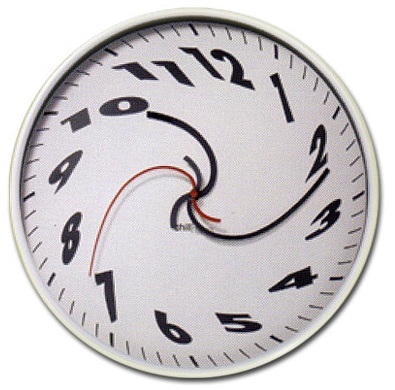
The other day I talked about another power outage we had and while I was sitting there mostly in the dark because my family didn’t want to run but one single, dim lantern in the pitch black darkness (don’t ask me why) I began to ponder time and whether it will mean anything when SHTF.
Ultimately, I’d decided that if this were SHTF time wouldn’t matter too much. That is, the actual counting of hours, minutes, and seconds wouldn’t matter much… keeping track of the seasons is another matter and likely still important.
During the power outage, however, my kids didn’t want to go to bed because it wasn’t “time for bed” which we still had an hour or so to go until then even though it was nearly pitch-black dark outside. If there was no time or clocks to keep time my kids obviously wouldn’t have known any different. I sort of smiled under my breathing wondering how long it would take post-SHTF for folks to go back to what we’ve done for most of time, that is, to go to bed with the sun.
In fact, going to bed with the sun and rising with it is only a part of the way most people lived not too long ago. Apparently, folks used to actually get up in the middle of the night and do chores–or other activities–for a few hours and then go back to bed for their “second sleep” as they called it. I would assume this was common practice because they went to bed early with the setting of the sun, at least, during the winter which would have meant they slept for more hours than they were awake. I know a few people who can do this without batting an eye but not most of us.
Anyway, I wonder if this is why I often wake up at night and will literally stay awake for hours until I’m able to sleep again? No… it’s probably that our country is going to “hell in a hand-basket” and it worries me, a lot. 😉
It’s interesting that we humans have felt need to add such an artificial concept as time to life. I’d suspect that humans got along fairly well throughout most of our history without a watch or really any clocks for that matter. Realize that I’m not talking about the ways we’ve tracked the sun to know when to plant and harvest crops (such as with obelisks) but with tracking hours and minutes of the day. Yes, I know ancient civilizations have used all sorts of interesting inventions, including the sundial and water clocks to track time but these weren’t terribly accurate in most cases.
It wasn’t until the 1400’s or so that mechanical clocks started to show up which made keeping track of time much more reliable and in the 1600’s the pendulum clock made timekeeping VERY reliable. We’ve never looked back since.
But why? Why is it so important for us to keep track of time?
Well, for starters, time does make many things work much better in our modern lives, including obvious uses like knowing when to be at work, school, or attend a meeting. Keeping track of time has less realized uses too, such as making computers run and keeping GPS satellites in orbit but also touches every aspect of our modern lives and, no doubt, makes society hum like a well-oiled machine.
But, I’d say it’s more than that. In fact, I found this interesting quote about how keeping track of time has drastically influenced our lives:
In 1983, the Harvard economic historian David Landes wrote an influential book called Revolution in Time: Clocks and the Making of the Modern World. There, he argued that timepieces (more than steamships and power looms) drove the economic development of the West, leading it into the Industrial Revolution and eventually into an advanced form of capitalism. Timepieces allowed us to measure time in accurate, uniform ways. And, once we had that ability, we began to look at the way we live and work quite differently. Landes wrote:
“The mechanical clock was self-contained, and once horologists learned to drive it by means of a coiled spring rather than a falling weight, it could be miniaturized so as to be portable, whether in the household or on the person. It was this possibility of widespread private use that laid the basis for ‘time discipline,’ as against ‘time obedience.’ One can … use public clocks to simon people for one purpose or another; but that is not punctuality. Punctuality comes from within, not from without. It is the mechanical clock that made possible, for better or worse, a civilization attentive to the passage of time, hence to productivity and performance.”
But when SHTF, will any of this matter? Probably not. Not for a while anyhow.
Yes, we will still do our best to artificially keep track of time by any means necessary, be it your grandfather’s windup pocket watch or maybe even sundials and water clocks again… it seems we just can’t help ourselves.
My advice? Worry less about the hours of the day when SHTF and more about the bullets flying over your head… that’s what’s really going to matter.

Leave a Reply